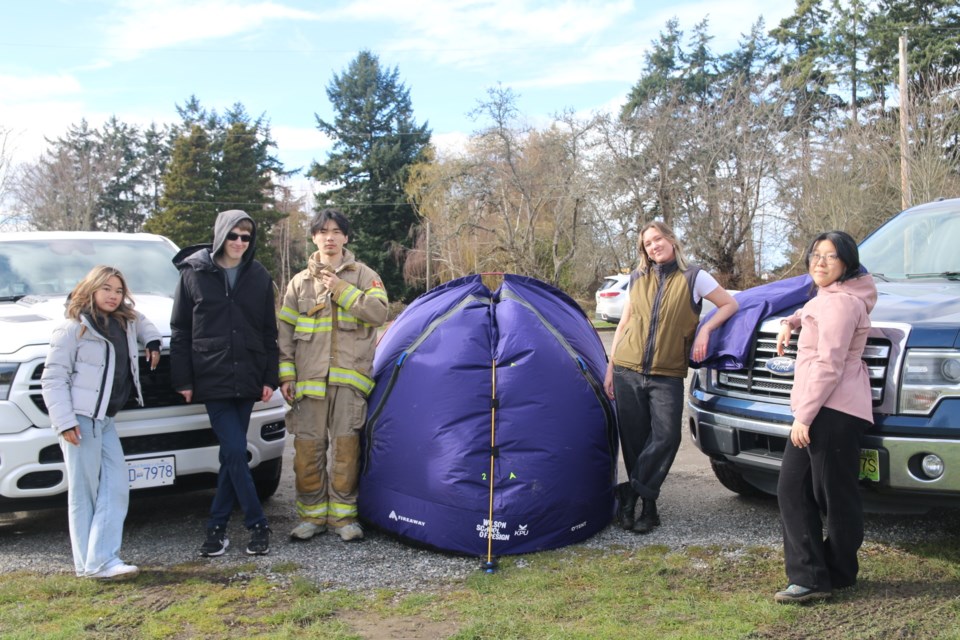A group of students from KPU's Wilson School of Design may see their tent designs put to the test this wildfire season.
Designed by third-year students in the product design program, the shelters aim to provide clean air on fire lines and at fire camps for firefighters and improve safety conditions, and BC Wildfire Service plans to test them out at fire camps impacted by wildfire smoke in summer.
“These professionals are often stationed far from their base camps and are constantly exposed to harmful smoke and poor air quality, even during breaks,” explained third-year student Kevin Kang.
“Our goal was to create a clean-air shelter that could help reduce the immediate dangers of smoke inhalation and address the long-term health risks.”
The clean-air shelters come in two sizes and are designed to be easy to set up. They are equipped with a three-layer filtration system akin to advanced cabin air filters that remove a wide range of pollutants, according to the media release.
The smaller size is designed for fire line use and can accommodate two people, Its portable, rechargeable battery is designed to accommodate uses in remote and off-grid locations.
The larger tent, on the other time, is for fire camps and can accommodate up to 12 people.
Jesse Wallace-Webb, initial attack crew leader and research analyst at the BC Wildfire Service, said it is "challenging" to find respiratory protection effective under extreme conditions.
“Historically, the BC Wildfire Service staff were not provided respiratory protection against wildfire smoke, ash and dust exposure on the fireline,” he explained.
“Future iterations of these clean-air shelter prototypes might represent one potential tool, among many others, for addressing smoke exposure during wildfire response.”
The prototypes were created through an eight-week project inspired by John Valliant's book Fire Weather: The Making of a Beast, where third-year Bachelor of Design students were challenged to research and develop prototypes to tackle wildfires.
According to the B.C. government, the 2023 wildfire season was "the most destructive" in the province's recorded history, with more than 2.84 million hectares of forest and land burned and about 208 evacuation orders that affected around 48,000 people.
A total of 2,245 wildfires were recorded between April 1 and October 31, 2023 and the number of hectares burned doubled the previous record of 1.35 million from 2018.
However, 80 per cent of the fires were contained at five hectares or less.
The estimated cost of wildfire suppression during the 2023 season is $817 million.
Got an opinion on this story or any others in Richmond? Send us a letter or email your thoughts or story tips to [email protected]. To stay updated on Richmond news, sign up for our daily headline newsletter.



